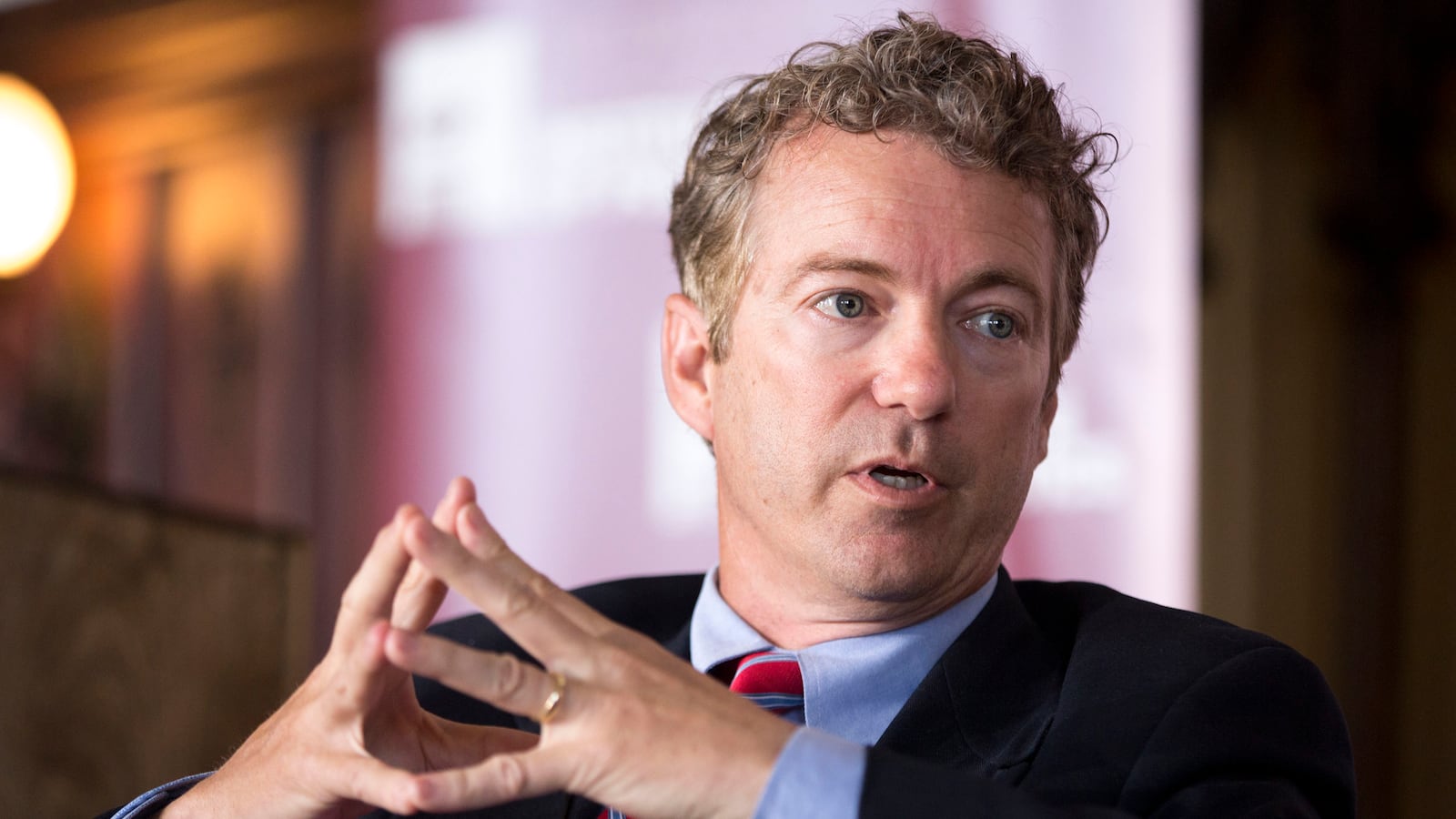President Obama may not have a strategy to combat ISIS, but Rand Paul does. And it involves the U.S. taking a backseat to Iran and Syria.
“Right now, the two allies that have the same goal would be Iran and Syria, to wipe out ISIS. They also have the means, and the ability, and they also have the incentive to do so because [Syrian President Bashar al-]Assad’s clinging for power and clinging for life there,” the junior Kentucky senator told Sean Hannity on Wednesday, while appearing on his radio show. In addition to Iran and Syria, Paul said he believes “the Turks should be enjoined” in the fight.
It’s a position that has been floated by some foreign policy hands in Washington. But it’s also one that is more than a bit out of step with Republican thinking on the Middle East. Assad is responsible for the deaths of tens, if not hundreds of thousands, of his own citizens in a Syrian civil war that has all but leveled the country. And although relations between Tehran and Washington have thawed a bit, Iran is still officially regarded as one of the world’s leading sponsors of terrorism.
Yet Paul has consistently entertained the notion of teaming up with Assad. He once warned: “If we were to get rid of Assad, it would be a jihadist wonderland in Syria.”
Paul, who is an early frontrunner for the Republican presidential nomination (though he hasn’t officially announced his candidacy), said that he believes there is a role for the U.S. in fighting ISIS along with Iran, Syria, and Turkey, and if he were president, he would seek congressional approval to “take care” of them “militarily.”
But, he said, “I still would like to see the ground troops and the battles being fought by those who live there, and I think we can give both the technical as well as air support that can be the decisive factor in this.”
Paul wouldn’t go as far as to agree with Hannity that ISIS is at war with America, but called them “a threat,” in addition to “dozens…maybe even fifty groups over there, that are enemies of America.” Paul then said he’s “worrie[d]” about Obama’s instantly-iconic admission that the U.S. does not have a strategy to combat ISIS in Syria. In the last two weeks, ISIS has beheaded American journalists James Foley and Steven Sotloff in videos addressed to the U.S.
Paul charged that the chain reaction of U.S. involvement in the Middle East is what, in part, led to the rise of ISIS: “I think part of the reason they’ve gotten so large is that we have armed Islamic allies of theirs, Islamic rebels, in Syria, to degrade Assad’s regime, and Assad, then, couldn’t take care of ISIS. Really, I think what we’ve done, the unintended consequences of being involved in the Syrian civil war, have been to encourage the growth of ISIS by supporting their allies…
“I think it’s our intervention that really held Assad at bay, and Assad would have wiped these people out long ago.”
If that’s the case, it’s news to the rebels fighting Assad, who say they’ve received only token shipments of small arms from the Americans.
“The people who think Bashar al-Assad’s regime is the answer to containing and eventually eliminating the Islamic-based threat do not understand the historic relationship between the regime and ISIS. [They] don’t understand the current relationship between Assad and ISIS and how they are working on the ground together directly and indirectly inside Syria,” Robert Ford, the recently departed U.S. ambassador to Syria, told The Daily Beast in July. “The people who think Assad’s regime survival is essential have not explained how his survival would solve the problem of extremism in Syria.”
Paul’s foreign policy has long-confounded those on the left and the right. While preparing to run for the Senate, in 2009, he charged that the decision to invade Iraq was heavily influenced by former Vice President Dick Cheney’s ties to Halliburton. He advised against intervening in Libya and Syria. And he advocated for ending all foreign aid. Paul’s statements indicating he is open to reengagement in Iraq have been viewed as something of a departure from what his critics allege is an anti-interventionist worldview.




